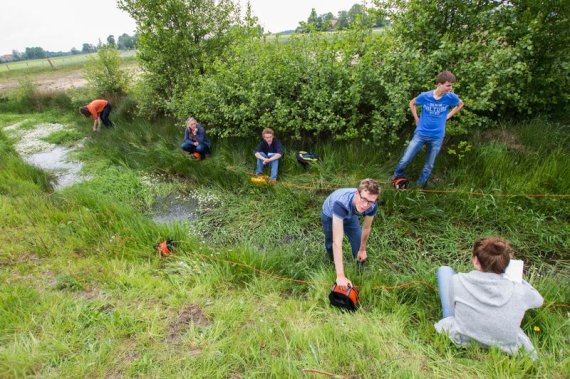This was announced by Minister of Agriculture Carola Schouten on 16 January. The ‘Green Deal Nature-inclusive Agriculture in Green Education’ was signed by three Ministries, WUR, the four agricultural universities of applied sciences, the agricultural educational centres, the young farmers’ organisation NAJK and the provinces. The aim of this deal is to have thinking and acting in a nature-inclusive manner, in which nature on and around the farm is actively used, become a fixed component of the programme.
‘To realise the change towards other forms of agriculture, we need more than just a transition in the agricultural sector itself; we also require a transition in green education and the way we train our future entrepreneurs and farmers’, said Minister Schouten during the signing of the Green Deal. She perceives this deal as the first factual implementation of the circular vision of her Ministry. The dissemination of ecological knowledge should not be exclusive to students but also shared with farmers and their advisers.
Transition
WUR will not be developing new courses or minors in the field of nature-inclusive agriculture, says Frank Bakema, Manager Education at WUR. ‘We already have the knowledge, but we will now emphasise the knowledge transfer to green education.’ One of the steps taken toward this will be establishing an Educational Circle for Nature-Inclusive Agriculture, with lecturers from green education who will discuss knowledge development, lecturer training and educational development. The chair groups Farming Systems Ecology and Forest & Nature Policy will provide knowledge and projects, as will the WUR Agroecology and Technology Test Location in Lelystad. The universities in Utrecht and Groningen will also share their knowledge on ecosystem services in agriculture.
The students can also contribute to the transition to a nature-inclusive circular agriculture in the Netherlands, as the minister launched an Impactprijsvraag Groen Onderwijs (‘Impact Contest Green Education’) last year. The prize for this contest was awarded on 16 January during the presentation of the Green Deal. The Wageningen project Biodyeing won the contest and received 2,500 euros. In this project, students used bacteria to dye textiles, to help toxic waste in the clothing industry to be mitigated. This educational project originated from the course Academic Consultancy Training, in which students form multidisciplinary teams and work on assignments from companies, governments and social organisations.

 Photo: Marte Hofsteenge
Photo: Marte Hofsteenge